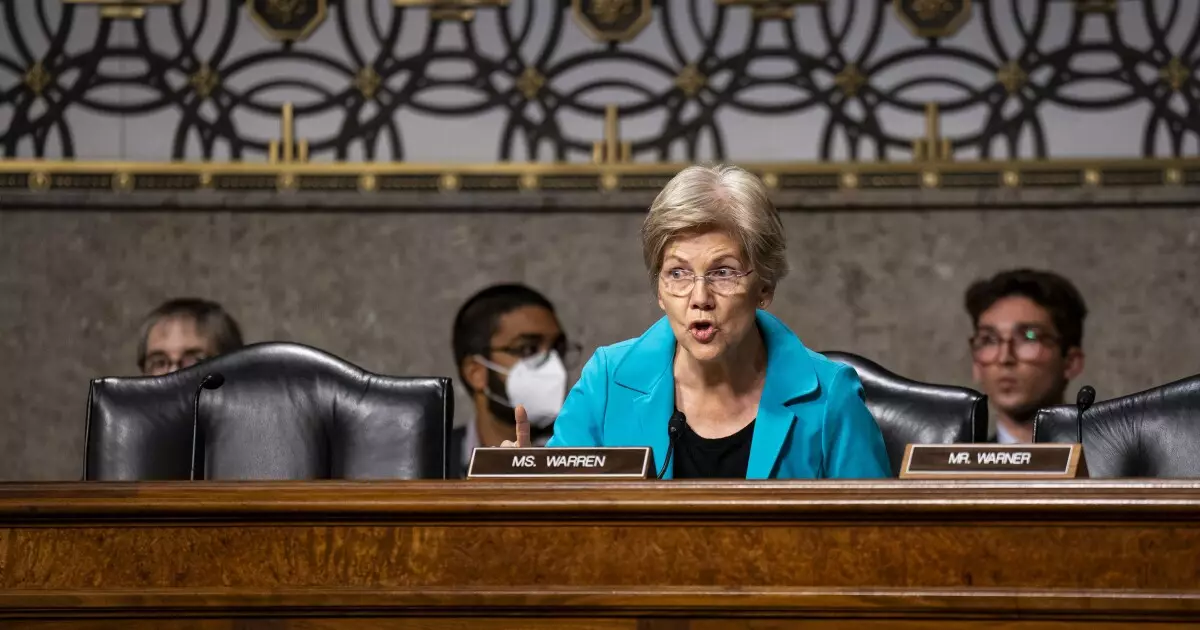The 2017 Tax Cuts and Jobs Act (TCJA) has sparked ongoing discussions regarding its short- and long-term economic impacts. As the incoming Senate Banking Committee Ranking Member, Senator Elizabeth Warren has made it clear that she views the TCJA as a significant misstep for American fiscal policy. During a recent subcommittee hearing, Warren described the tax reforms initiated under President Trump as a “scam of giant proportions,” provoking questions about the equity of tax policies, especially as Congress prepares for discussions around extending these cuts.
The TCJA was heralded by some as a vital stimulus for the economy but has attracted criticism for disproportionately benefiting corporations and wealthy individuals. Critics like Warren argue that the promise of job growth and increased wages fell significantly short of expectations. As Congress faces the potential of a repeat of this policy battle, lawmakers must reflect critically on the past outcomes, especially as the call for tax fairness grows louder among progressives.
Warren’s concerns extend to the fiscal ramifications of prolonging the tax cuts. Citing fiscal estimates from the Congressional Budget Office and the Joint Committee on Taxation, she projects that extending the TCJA provisions could cost taxpayers an astounding $4.5 trillion from 2025 to 2034. The intrinsic challenge lies in balancing these tax benefits against the growing deficit, a balancing act that is complicated by the maneuvering of politicians who prioritize tax cuts over revenue needs.
The implications are stark; if these provisions go forward, American taxpayers may bear the financial burden, effectively subsidizing tax cuts meant for billionaires. This sentiment was echoed by other Democratic voices, as they articulated that tax reforms should reflect the interests of the general populace, rather than serve the wealthiest few.
Deliberations on tax policies not only affect fiscal sustainability but also reveal differences in political ideologies. For instance, the mention of potential “magic math” by Republican Senator Mike Crapo hints at the contentious nature of these discussions. Proposed methods that might allow Republicans to sidestep offsetting lost revenue appear to many as an attempt to obfuscate the long-term economic consequences of their proposed policies.
Additionally, the debate around the state and local tax (SALT) deduction cap—enacted under the TCJA and set to expire soon—serves as a focal point for conversations on tax equity. Senator George Helmy has voiced opposition to this cap, highlighting its disproportionate impact on states with higher taxes, thus raising further questions about regional fairness in tax policy.
The Role and Influence of Incoming Committee Leadership
With Warren poised to become the leading Democrat on the Senate Banking Committee, her platform enables her to amplify these pressing issues. It is anticipated that her role will facilitate broader discussions on inequality and tax fairness, equipping her to challenge the GOP’s fiscal strategies effectively. The heightened visibility associated with this position could also mobilize a coalition of Democrats committed to advocating for reforms that favor middle-class Americans over the affluent minority.
As the Republican party unveils an aggressive agenda purportedly aimed at tax reform, the Senate discussions could prove critical. With action expected as soon as January, the forthcoming negotiations are not only fundamental for fiscal policy but also for shaping the political landscape in terms of accountability and responsiveness to citizens.
The Broader Outlook on Tax Policy Reform
Ultimately, the impending tax discussions will determine not just the financial policies of the coming years, but also the broader principles that will guide U.S. economic recovery and growth. The stakes are high, as the tax narrative has the potential to influence public sentiment towards government policy effectiveness in delivering socio-economic equity. Faced with competing interests, lawmakers will need to deftly navigate the complex interplay between fiscal responsibility and equitable tax policy, ensuring that the American people are truly served, rather than misled, by their representatives.

